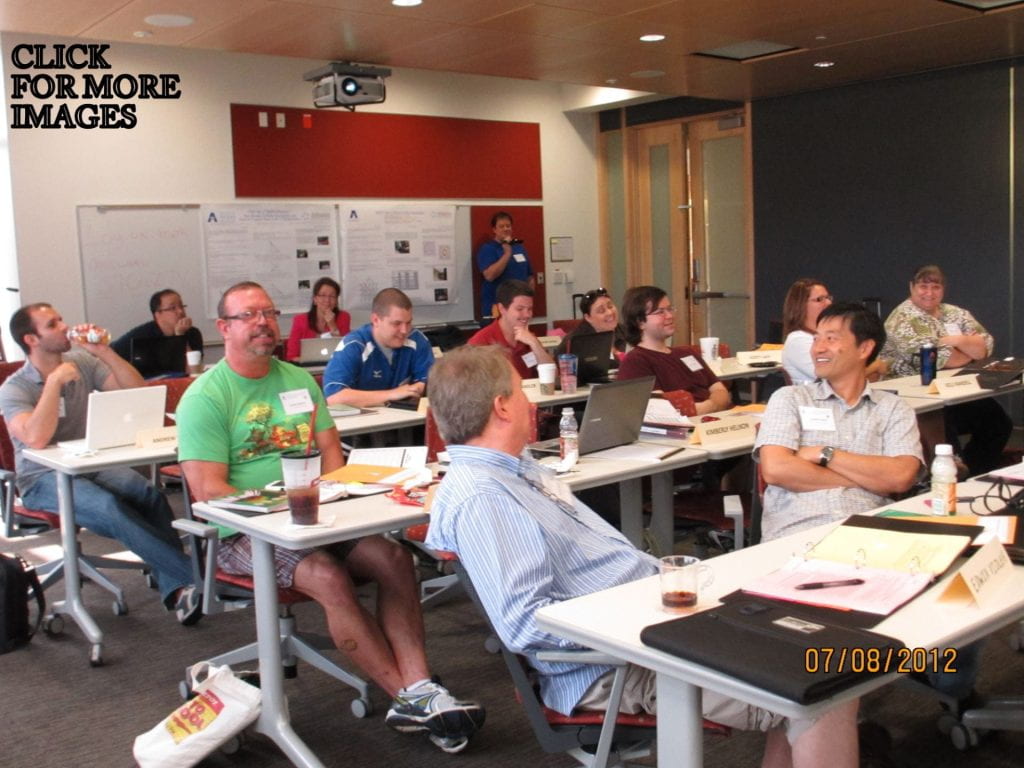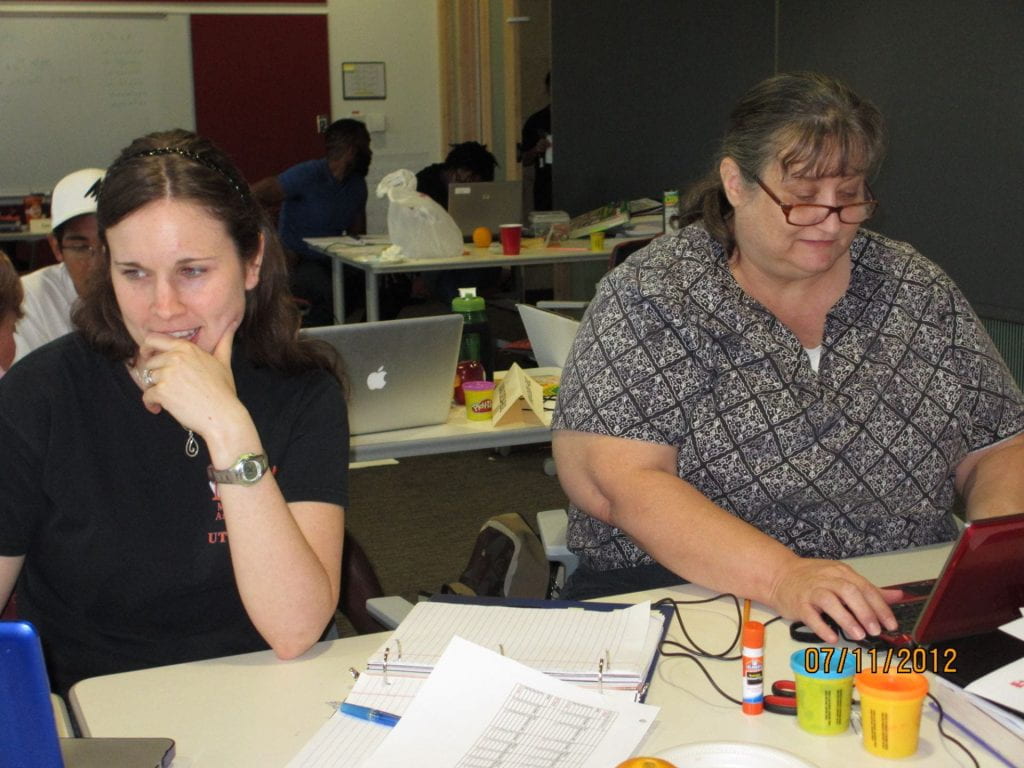Summer Component
Professional Development Workshop for MAVS fellows and K-12 mentor teachers
(Click for more images)

Mentor Teacher and Fellow Pair in action (Click for more images)

Alice Lubbe Gives a Glowing Testimontial For the Professional Development Institute
More testimonials were give by Charles Nguyen, Scott Lacy, Jason Gilgenbach and Kimberly Helixon
The GK-12 MAVS project program year begins with a two-week professional development institute (PDI). The two-week PDI begins early in July with a one-week intersession and resumes for another week during the later part of July. This timing allows for smooth transition into the academic year, since teachers report back to their schools in the third week of August. GK-12 MAVS fellows and MAVS mentor teachers participate in the PDI and form Teaching Quads (TQs). The first week focuses on essential elements in learning theory, pedagogy, and lesson development as they relate to identifying and using vertical strands in the curriculum. The Fellows and Teachers develop six model lessons during the PDI.
During the intersession, the Teaching Quads develop an action plan for completing the model lesson work assigned in the first week of the PDI. The TQs also read articles that focus on problem solving in the classroom, algebraic reasoning, best teaching practices, and cognitive development.
The second week of the PDI focuses on refining the lessons developed, research presentations by MAVS fellows, and experiencing K-12 mathematics lessons that focus on active learning. Additional training in the use of technology, such as CBL’s, graphing calculators, or mathematics software, is provided. They also develop an action plan for the academic year that follows the scope and sequence of the curriculum and allows for implementation of one “research lesson” per six weeks period. The week culminates with TQ presentations of the completed lessons developed.
Drs. Epperson and Jorgensen lead the summer institute each year. They communicate a deep sense of how to appropriately connect advanced ideas vertically through the curriculum. Both have designed content-based graduate mathematics courses for high school teachers in the Master of Arts in Mathematics program for teachers (MAMT) offered by the Department of Mathematics. Dr. Epperson has unique experience in this area having served as a principal author for mathematics-content chapters in the Advanced Placement Mathematics Vertical Teams Toolkit (Epperson, et al. 1998).